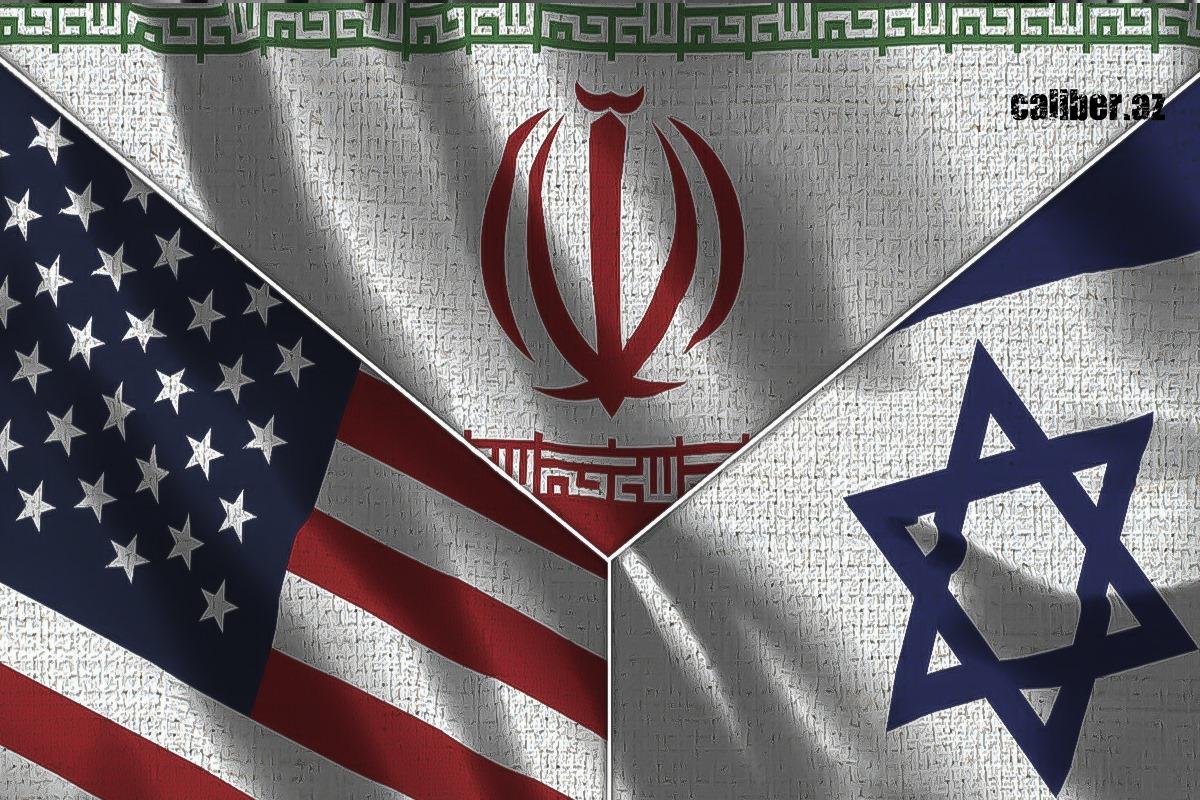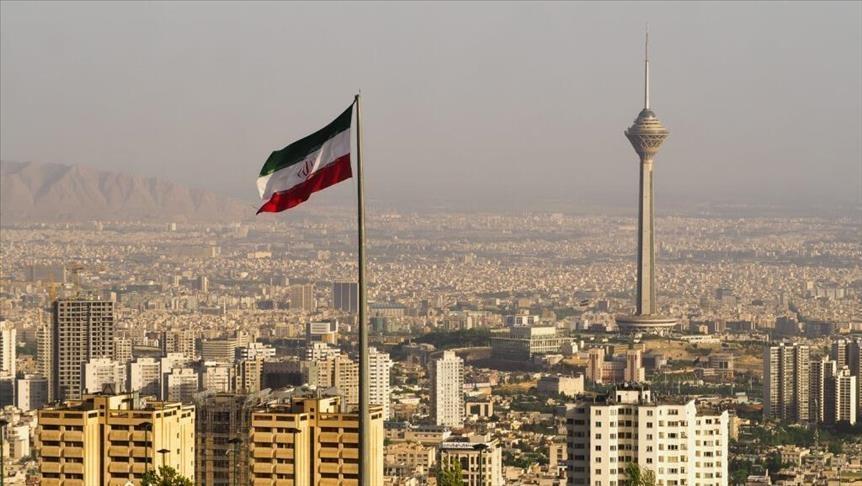Scheduled warfare: Decoding Iran's planned attack on Israel Caliber.Az review
On Sunday (April 13) night, Iran attacked Israel with more than 300 drones and missiles. According to the Israeli army, almost all of these drones and missiles were shot down. Despite the somewhat conflicting casualty and damage figures, it is safe to say that it is limited and that strategic facilities in Israel were not affected.
By Sunday afternoon, the Iranian military said its goal of avenging the deaths of Islamic Revolutionary Guard Corps (IRGC) officers in an Israeli strike on the Iranian embassy in Damascus had been achieved and the operation was over. But in recent days there have been signs that serious world players - from the US and other Western countries to Russia - have been making efforts to prevent escalation. And Tehran was apparently not averse to negotiating with them. After all, despite the fire-breathing rhetoric of Iranian Islamists against the "Zionist entity", the entire history of the confrontation between Iran and Israel after 1979 is full of highly contradictory episodes.
Diplomatic intrigues and senseless military actions
Statements by Western politicians, including US President Biden, urging Iran to abandon the attack, gave the Iranian operation an extremely bellicose image even before it began. Over the past few days, the Western media have been talking about the impending strike. However, a few details, such as the West's rather modest military preparations in response to this Iranian threat and the cancellation of civilian airline flights in the region, were disconcerting. The impression was that the attack was being prepared with notice to a number of interested countries, and that Tehran was about to repeat the equally demonstrative missile attack on US bases it launched in 2020, when the Americans killed a key IRGC commander, Qasem Soleimani, along with one of the biggest leaders of pro-Iranian formations in Iraq. And this time Tehran did not deceive expectations. Having launched more than 300 kamikaze drones, cruise missiles and ballistic missiles (however, with the latter it is not quite clear whether they were launched at all) towards Israel from the territory of Iran, Iraq and Yemen, Tehran, with the probable help of the international community, made of all this, at first glance, only a military spectacle.
The world spent the whole of Saturday evening watching the flights of Iran's rather silent drones, although in military terms launching them towards a distant and alert enemy with effective air defences was, to put it mildly, irrational. The world media played along with this spectacle by talking about "the largest drone attack in history". This may be nominally true, but in terms of firepower the strike was questionable: drones plus a hundred and fifty rockets seemingly fired at Israel is more the level of Hamas than of the Iranian military machine. Since the Iranians were probably not averse to diplomatic "deal-making," when they fired back to announce the end of the operation, some civilian airliners were flying back into the region as early as Sunday lunchtime. This clearly indicated a firm arrangement, with Iran defiantly launching its drones and missiles, and the superpowers allowing it to frame these actions as some kind of strategic operation. A war on a timetable drawn up by the superpowers.

Intelligence wars and squabbles within the Iranian elite
Tehran, of course, would certainly respond to the recent deaths of IRGC members in an Israeli strike. But at the same time, the Iranian leadership was worried about a possible escalation, since a serious blow could be met by the Israeli government with a full-scale war against Iran and its allies. After all, the current Israeli leadership relies on the full support of the U.S. and the entire collective West, and even Russia, to resolve the Palestinian issue in the Gaza Strip (even if U.S. President Biden personally does not like it).
Let us recall that virtually no Arab State has officially opposed Israel's operation in the Gaza Strip, either in words or in deeds. It is also quite clear that the current Israeli leadership is not only determined to bring the Gaza operation to an end. It is prepared to conduct similar operations in other areas to strengthen its position in the region, which would be particularly helped by the defeat of Lebanon's Hezbollah. A serious Iranian strike on Israel would increase both Western and Russian support for such a hypothetical Israeli operation.
But Iran's leadership has another reason to be reticent about avenging IRGC officers. The fact is that the Corps remains a fairly autonomous structure within the Iranian government. It is a remnant of transnational structures from the days of the export of the Islamic Revolution. But those times ended in the late 1980s, and therefore for Iran's leadership, exporting revolution and supporting revolutionary movements has long since become an annoying archaism and a periodic headache. It is often linked to the activities of the IRGC, although for the IRGC, too, support for Islamist organisations is no longer a goal, but a means for its own survival and for safeguarding Iran's interests as understood by the IRGC.
I recall that even the notorious "nuclear deal" haggled over by Iranian liberals with Iran began to fall apart in the 2010s because, as its opponents in Israel and the West pointed out, it did not cover two other critical issues that were firmly tied to the IRGC (the missile programme and Iranian support for radical movements in the Middle East).
Since the late 1990s, the Iranian leadership has been trying to reach an agreement with the West, paying for it by curtailing the activities of the IRGC and its allies. And in the early 2000s, against the backdrop of the September 11 attacks, Tehran even explored the option of demilitarising the IRGC's key ally, the Lebanese Hezbollah, in order to weaken this Lebanese movement by agreement with the United States. But Washington decided that it would crush Tehran as it was. It failed to do so, but since then the Corps, which had been severely weakened in the 1990s, has begun to strengthen again. It should be recalled that the Iranian military presence in Lebanon and Syria, as well as interventions in Iraq, Yemen and Afghanistan, are entirely the work of the IRGC, not the Iranian army.
All these operations are not only a matter of international politics, but also of power within Iran. The more pro-Western and liberal forces in Tehran are not post-Soviet liberals, but toothy political forces with considerable influence in the state. This can be exemplified by completely elite figures like former presidents Rafsanjani, Khatami or Rouhani, and even opposition figures like Mousavi or Kharroubi, who, typically, did not even lose a hair in their home confinement. These more pro-Western and liberal factions of the Iranian establishment see the IRGC and its actions as a threat to their attempts to reach a "deal" with the West, and even to their efforts to gain and retain power in Iran. Therefore, if the IRGC has problems somewhere in Syria or Lebanon, this also affects the balance of power in Iran, since these kinds of foreign operations are usually not the product of some stable consensus of Iranian political forces, but are based only on the determination of certain groups to pursue their goals at home and abroad through such operations.
Anti-Israeli rhetoric and Tehran's real deeds
But perhaps we would nevertheless have seen much more extensive Iranian operations against Israel if the IRGC had not been hampered in their conduct by another aspect - the general foreign policy strategy of the Tehran leadership in the Middle East after 1979. Of course, one can find as much fire-breathing rhetoric as one wants in Iran against the Zionist movement, Israel, the US-Israeli line in the region, etc. But one should not fall under the influence of flowery phrases. It is better to look at the facts, namely, the deeds and real material arrangements.

Real cases show that Tehran has consistently limited the escalation of confrontation rather than following rigid ideological principles. Here are two examples from the most radical times in Iranian history. The first: in 1982, Ayatollah Khomeini intervened instantly in the IRGC's attempts to deploy an Iranian group in Lebanon against Israel with Syrian assistance. He ordered the recall of almost all volunteers. The second episode is even more beautiful. As Trit Parsi details in his book on the history of Iranian-American relations, throughout the first half of the 1980s, Israel did its utmost to help Iran, which was at that time clutching both the West and neighbouring Iraq. Israeli politicians persuaded the U.S. not to give up on Tehran, and helped the Iranians obtain crucial Western weapons, supplies and spare parts for the Iranian army. Iraqi leader Saddam Hussein seemed a greater threat to the Jews at the time than the Iranian revolutionaries. So, when radical factions of the Iranian regime tried to expose these kinds of secret deals with the U.S. and Israel, they were met with the most serious penalties by Iran's top leadership. As a result of the scandal known as Iran-Contras, even Khomeini's radical-affiliated successor, Ayatollah Montazeri, lost his post in 1986-1987. Yes, there was trouble for those exposed in such deals. But the whistleblowers were hanged.
In more recent times, Iran-Israel relations have deteriorated, but this, as Trita Parsi says, was mainly due to regional rivalries and the disappearance of a common enemy in the form of Arab nationalist regimes. And here we come to the second factor that explains Iranian policy towards Israel. The fact is that since 1979, Iranian radicals have long and unsuccessfully sought partners in the struggle against the "Zionist entity." Despite years of attempts, Arafat and the PLO left the Iranians (who even gave them the Israeli embassy in Tehran) first to Saddam, and then followed Western advice and joined the Oslo talks. Arafat's opponents, the Islamist groups, either did not form stable powerful movements (the Islamic Jihad remained a marginal group), or at the first opportunity threw the Iranians through (Hamas, for example, firmly opposed the Iranians after the outbreak of the civil war in Syria, and, in addition, always "muddled" with the Arab monarchies of the Gulf, intriguing against Iran).
In short, the events of the past few days cease to surprise us if we recall the history of Iranian relations with the Israelis and Palestinians, and realise that "Iranian" in this case simply means "IRGC". Under these circumstances, there is little point in rushing to escalation on the Israeli side either, because it is obvious that there is no consensus behind Iranian operations against Israelis even in the Iranian establishment, no matter how much colourful rhetoric is heard from Tehran. This means that such operations hardly have a chance of turning into a more serious threat to Israel.
The views and opinions expressed by guest columnists in their op-eds may differ from and do not necessarily reflect the views of the editorial staff.








